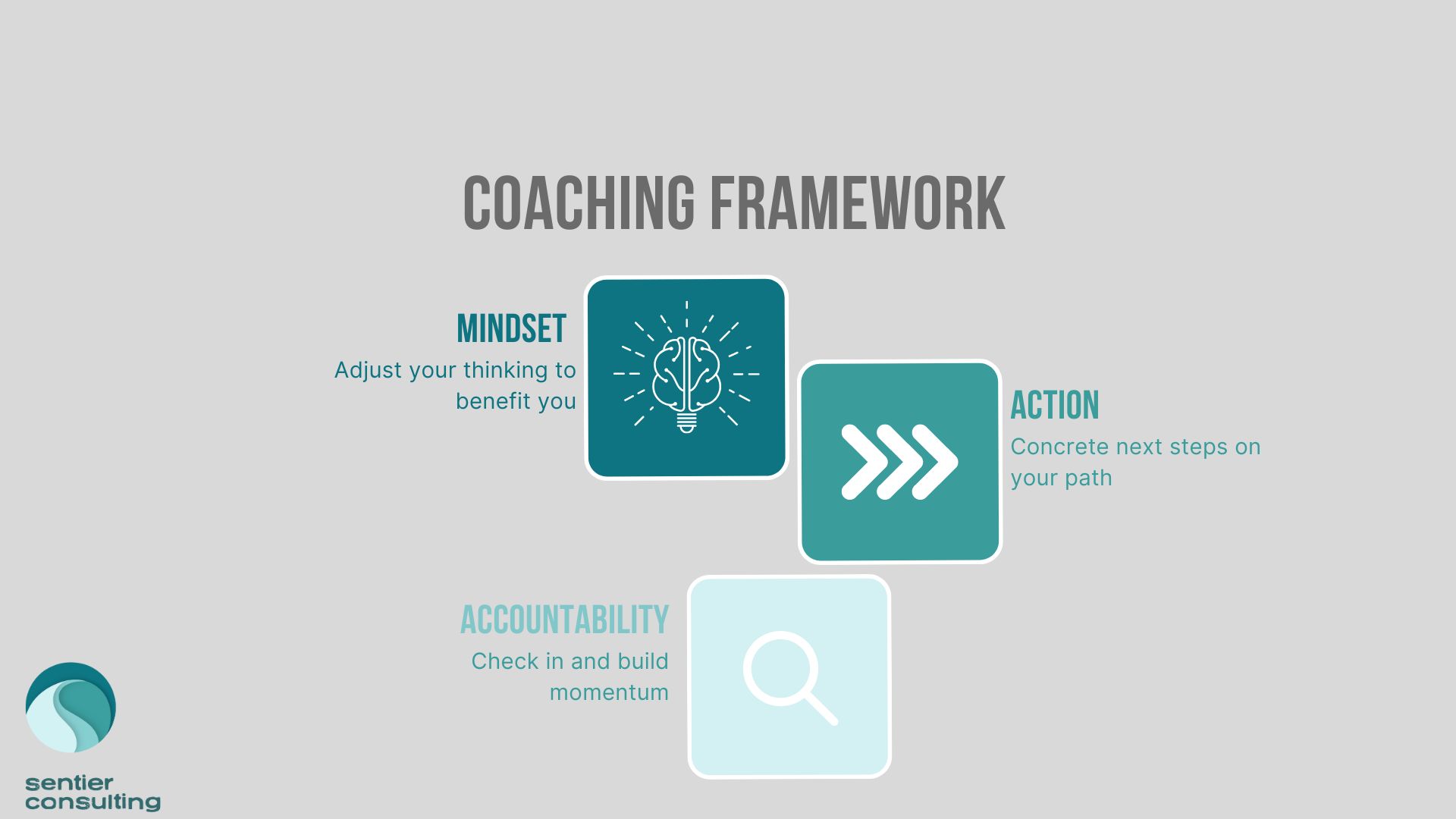It’s a myth that coaching is only for senior leaders and executives.
Historical precedence, perceived value and prohibitive costs have caused this, but it’s changing. Ambitious new leaders are exploring coaching and it’s reaping rewards for them, those around them, and the businesses they work in. Those who ignore it risk getting left behind.
For new leaders, leading with confidence, conviction and empathy is key. Successfully transitioning to this new career phase comes down to having a framework.
What do you need to do to succeed?
1. Give your team the support they need to thrive
Leadership is about coaching, facilitating and ensuring your team grow and develop. Your role is to create the environment where this happens. You need to understand their needs and motivations and harness their talent to create a high performing culture. It’s also about having difficult conversations, and providing the scaffolding so the team are supported when things don’t go to plan.
2. Confidently put your views forward, now that you’re sitting around a different table
Being part of a leadership team means you’re exposed to a different aspect of the business; financial performance, HR issues and strategy and direction. You’re coming to these discussions with a unique perspective with value to add, but that doesn’t mean it’s not sometimes a bit intimidating to speak up in a room full of experienced people. Diversity of opinions is what makes for good decisions, so it’s crucial that you find ways to make your voice heard, even if it’s a bit uncomfortable at first.
3. Balance the demands of your leadership role with other responsibilities
Taking on a leadership role means more responsibility, and this takes time and practice, particularly at the start. When you still want to work on projects, developing the ideas and solutions that you know make a difference, it can be overwhelming to balance it and not get burnt out. Leadership also means a shift in focus and priorities, so getting this right will help you in the long term
Ok, but where are the gaps?
Confidence can be the answer to many things, particularly in leadership. When it comes from a place of grounded authenticity, and a willingness to do the work and learn with self awareness, fears can be overcome. A preparedness to be a bit vulnerable is also key. Here are a just a few of the ways coaching helps.
- The act of verbalising fears, gives them shape – rather than being an amorphous feeling, giving it words forces specificity that then breaks it down to more manageable chunks. And this makes it much easier to see it for what it is. Often this means you realise it’s not as big or as bad as you thought. Or, there are clear ways you can mitigate the potential downside.
- Helps you realise the things that might be holding you back, by gently holding up a mirror to patterns in your thinking. Observing these patterns can help you realise that there might be alternative ways of thinking which are more constructive
- By acknowledging that you will have to do some uncomfortable things. When you think about these things in advance, you don’t let the fear hold you back, cause you’re prepared for it and you know that it’s in aid of your goal. You see it through a different lens.
So, what’s the pathway?
Changing behaviour is hard. Coaching is an external disruptor that supports you to reframe your thoughts and approach. It’s different from training – because it’s an applied learning tool that is unique to you. It helps you learn about yourself. There are three key elements to Sentier’s coaching program

1. Mindset
Your mental attitude, beliefs, and perspective about yourself and the world around you shapes how you interpret situations and challenges. It’s the stories you tell yourself about what happened and, more importantly, what this means. We work on making sure you know the best version of your mindset, and the tools to call on this when you need it most.
2. Clear actions
Getting specific about the actions you’re prepared to take helps to break down a big long term goal in to more manageable tasks. Rather than a long list (that never gets done) we focus on only a few challenging but achievable actions. Momentum builds confidence!
3. Accountability
How will you hold yourself accountable? What support do you need to follow through? Being clear about this upfront takes away from the risks of procrastination (but here’s what to do if you get stuck!). And, importantly, how will you celebrate when you’ve done what you said you would? Coaching also involves curiously reflecting, without judgement, on what happened when you took action, or what held you back.
What does this all mean?
Coaching gives new leaders:
- clarity on their strengths, and how to make the most of them in their new context
- confidence to step in to new challenges
- ability to manage their busy lives and avoid burnout
If you’re a new leader with big ambitions, or you’re working with one, get in touch to uncover how this framework will create the foundations for a fulfilling career.





